Here are the people who attended the National Strategy Meeting of Historians.
 Alexander Aviña is an associate professor of Latin American history in the School of Historical, Philosophical and Religious Studies at Arizona State University. His research interests are in twentieth century Mexico, with a focus on the Left, social movements, radical politics and peasant political cultures. His current political work increasingly involves providing expert witness testimony and declarations for asylum cases filed by Mexican nationals.
Alexander Aviña is an associate professor of Latin American history in the School of Historical, Philosophical and Religious Studies at Arizona State University. His research interests are in twentieth century Mexico, with a focus on the Left, social movements, radical politics and peasant political cultures. His current political work increasingly involves providing expert witness testimony and declarations for asylum cases filed by Mexican nationals.
Andy Battle is a doctoral student in US History at the CUNY Graduate Center. His present research explores the deindustrialization of New York City through case studies of “runaway plants,” or factories that left New York for the American South or abroad between 1945 and 1975. His writing on film, theory, infrastructure, and New York City history has appeared in Jacobin, Commune, The Brooklyn Rail, and elsewhere. He has been active in the academic labor movement and other social struggles.
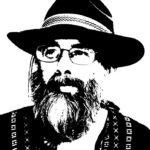 Marc Becker is professor of Latin American history at Truman State University. His research focuses on the history of the Latin American left. Among his publications are The FBI in Latin America: The Ecuador Files. He is a founding member, former co-chair, and web editor for Historians for Peace and Democracy (H-Pad).
Marc Becker is professor of Latin American history at Truman State University. His research focuses on the history of the Latin American left. Among his publications are The FBI in Latin America: The Ecuador Files. He is a founding member, former co-chair, and web editor for Historians for Peace and Democracy (H-Pad).
 Dan Berger is associate professor of comparative ethnic studies at the University of Washington Bothell and the author or editor of six books on US social movements. A longtime anti-prison activist, Berger cofounded the coalition Decarcerate PA and now coordinates the digital archive Washington Prison History Project.
Dan Berger is associate professor of comparative ethnic studies at the University of Washington Bothell and the author or editor of six books on US social movements. A longtime anti-prison activist, Berger cofounded the coalition Decarcerate PA and now coordinates the digital archive Washington Prison History Project.
 Renate Bridenthal is Co-editor and contributor to: Becoming Visible: Women in European History; Families in Flux; When Biology Became Destiny: Women in Weimar and Nazi Germany; The Heimat Abroad: The Boundaries of Germanness. Co-editor of Interactions: Transregional Perspectives on World and History and of Seascapes, Littoral Cultures, and Transoceanic Exchanges. Editor, The Hidden History of Crime, Corruption and States.
Renate Bridenthal is Co-editor and contributor to: Becoming Visible: Women in European History; Families in Flux; When Biology Became Destiny: Women in Weimar and Nazi Germany; The Heimat Abroad: The Boundaries of Germanness. Co-editor of Interactions: Transregional Perspectives on World and History and of Seascapes, Littoral Cultures, and Transoceanic Exchanges. Editor, The Hidden History of Crime, Corruption and States.
 Laura Briggs is a scholar of US empire in Latin America and reproductive politics. She is the author of several scholarly books, including Reproducing Empire: Race, Sex, Science and US Imperialism in Puerto Rico. Briggs’s activism these days consists in public intellectual work—podcasts, op eds, and books, including in 2016, How All Politics Became Reproductive Politics: From Welfare Reform to Foreclosure to Trump. She is currently writing a book on the history that took us to child separation at the border, entitled Taking Children: An American History of Terror.
Laura Briggs is a scholar of US empire in Latin America and reproductive politics. She is the author of several scholarly books, including Reproducing Empire: Race, Sex, Science and US Imperialism in Puerto Rico. Briggs’s activism these days consists in public intellectual work—podcasts, op eds, and books, including in 2016, How All Politics Became Reproductive Politics: From Welfare Reform to Foreclosure to Trump. She is currently writing a book on the history that took us to child separation at the border, entitled Taking Children: An American History of Terror.
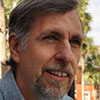 Paul Croce teaches at Stetson University about ideological differences that manners experts suggest not bringing to the dinner table. He’s written books on public intellectual William James, and in his spirit, he created PubClassroom, https://pubclassroom.com/, with many essays focused on learning from differences as substantial ways to encourage peace.
Paul Croce teaches at Stetson University about ideological differences that manners experts suggest not bringing to the dinner table. He’s written books on public intellectual William James, and in his spirit, he created PubClassroom, https://pubclassroom.com/, with many essays focused on learning from differences as substantial ways to encourage peace.
 Leena Dallasheh is a Palestinian citizen of Israel, an assistant professor of history at Humboldt State University. She has a PhD in History and Middle Eastern Studies from NYU. Her research focuses on modern Palestine/Israel history. Since college, she has been involved in struggle for justice for Palestine and social justice.
Leena Dallasheh is a Palestinian citizen of Israel, an assistant professor of history at Humboldt State University. She has a PhD in History and Middle Eastern Studies from NYU. Her research focuses on modern Palestine/Israel history. Since college, she has been involved in struggle for justice for Palestine and social justice.
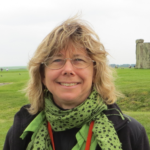 Mara Dodge teaches U.S. history at Westfield State University in Western Mass. Her scholarly interests include women’s history, labor history, history of prisons & local history. Currently she serves on the executive committee of the faculty union and is a member of the statewide Educators for a Democratic Union (EDU) and the local Democratic Socialists of America chapter.
Mara Dodge teaches U.S. history at Westfield State University in Western Mass. Her scholarly interests include women’s history, labor history, history of prisons & local history. Currently she serves on the executive committee of the faculty union and is a member of the statewide Educators for a Democratic Union (EDU) and the local Democratic Socialists of America chapter.
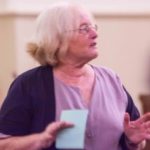 Carolyn Rusti Eisenberg is a professor of US history and American foreign policy at Hofstra University. She is the author of Drawing the Line: the American Decision to Divide Germany and is finishing a new book Never Lose: Nixon, Kissinger and the Illusion of National Security. She is the co-founder of Brooklyn for Peace and for more than a decade served as legislative co-coordinator of Congressional activity for United for Peace and Justice. She is a long standing member of the Steering Committee for Historians Against War.
Carolyn Rusti Eisenberg is a professor of US history and American foreign policy at Hofstra University. She is the author of Drawing the Line: the American Decision to Divide Germany and is finishing a new book Never Lose: Nixon, Kissinger and the Illusion of National Security. She is the co-founder of Brooklyn for Peace and for more than a decade served as legislative co-coordinator of Congressional activity for United for Peace and Justice. She is a long standing member of the Steering Committee for Historians Against War.
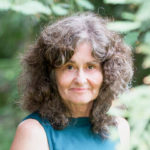 Barbara Epstein is a historian of social movements. Her books include Political Protest and Cultural Revolution (the anti-nuclear movement) and The Minsk Ghetto 1941-1943 (the ghetto resistance movement). Activism: Student Sane, Communist Party, SDS, Socialist Revolution editorial collective, direct action against nuclear weapons. Current project: the ideas that shaped the movements of the 60s.
Barbara Epstein is a historian of social movements. Her books include Political Protest and Cultural Revolution (the anti-nuclear movement) and The Minsk Ghetto 1941-1943 (the ghetto resistance movement). Activism: Student Sane, Communist Party, SDS, Socialist Revolution editorial collective, direct action against nuclear weapons. Current project: the ideas that shaped the movements of the 60s.
Jeri Fogel
Irene L. Gendzier, currently Prof. Emeritus at Boston University, was a long- time member of the Boston University faculty, where she served in the Departments of History and Political Science, and was associated with the African Studies Center. Throughout this period, in addition to teaching undergraduate and graduate courses on the history and politics of the Middle East and problems of Development, she has been active in speaking and writing about problems of development, as well as U.S. foreign policy in the Middle East.
 Van Gosse is a Professor of History at Franklin & Marshall. After writing about the New Left “movement of movements” for some years, he now studies black politics between the Revolution and the Civil War. He has been active in peace and solidarity work since the 1980s (CISPES, Peace Action, United for Peace and Justice) and helped found Historians Against the War, now H-PAD, in 2003.
Van Gosse is a Professor of History at Franklin & Marshall. After writing about the New Left “movement of movements” for some years, he now studies black politics between the Revolution and the Civil War. He has been active in peace and solidarity work since the 1980s (CISPES, Peace Action, United for Peace and Justice) and helped found Historians Against the War, now H-PAD, in 2003.
 David Greenberg is a Professor of History and of Journalism & Media Studies at Rutgers University and writes frequently on public affairs. He is the author or editor of several books on American history and politics including Nixon’s Shadow: The History of an Image (2003) and Republic of Spin: An Inside History of the American Presidency (2016).
David Greenberg is a Professor of History and of Journalism & Media Studies at Rutgers University and writes frequently on public affairs. He is the author or editor of several books on American history and politics including Nixon’s Shadow: The History of an Image (2003) and Republic of Spin: An Inside History of the American Presidency (2016).
Hannah R Gurman
 Anissa Hélie is professor at John Jay College, NYC, but especially loves teaching in prison. Growing up in Algeria, she has been involved with feminist organizations and transnational networks. Anissa speaks internationally on issues of sexuality, wars and conflicts, religious fundamentalisms and violence against women (and the unfortunate intersection of the four).
Anissa Hélie is professor at John Jay College, NYC, but especially loves teaching in prison. Growing up in Algeria, she has been involved with feminist organizations and transnational networks. Anissa speaks internationally on issues of sexuality, wars and conflicts, religious fundamentalisms and violence against women (and the unfortunate intersection of the four).
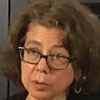 Rebecca Karl teaches History at New York University. She works particularly on modern China, revolution, gender, and social theory. She organizes at NYU with her colleagues on issues revolving around faculty governance, global and domestic academic freedom, labor rights, and any number of other arenas.
Rebecca Karl teaches History at New York University. She works particularly on modern China, revolution, gender, and social theory. She organizes at NYU with her colleagues on issues revolving around faculty governance, global and domestic academic freedom, labor rights, and any number of other arenas.
 Paul R. Katz is a PhD candidate at Columbia, where he studies state torture and the Left in southern South America in the 1970s. Paul was a founding organizer of Graduate Workers of Columbia-United Auto Workers Local 2110, the union for teaching and research assistants at Columbia, which is currently negotiating its first contract.
Paul R. Katz is a PhD candidate at Columbia, where he studies state torture and the Left in southern South America in the 1970s. Paul was a founding organizer of Graduate Workers of Columbia-United Auto Workers Local 2110, the union for teaching and research assistants at Columbia, which is currently negotiating its first contract.
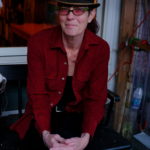 L.A. Kauffman has been a grassroots organizer and movement strategist for more than 30 years and is the author of Direct Action: Protest and the Reinvention of American Radicalism and How to Read a Protest: The Art of Organizing and Resistance.
L.A. Kauffman has been a grassroots organizer and movement strategist for more than 30 years and is the author of Direct Action: Protest and the Reinvention of American Radicalism and How to Read a Protest: The Art of Organizing and Resistance.
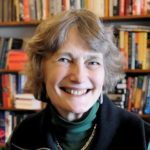 Alice Kessler-Harris, R. Gordon Hoxie Professor of History, Emerita, Columbia University continues to work on issues of labor and social policy, particularly as they concern women. She is particularly interested in how the current political climate affects how we write history. Her books include several around women and labor in the US and in comparative context, and most recently she has completed a MOOC whose purpose is to engage audiences of all kinds in women’s history.
Alice Kessler-Harris, R. Gordon Hoxie Professor of History, Emerita, Columbia University continues to work on issues of labor and social policy, particularly as they concern women. She is particularly interested in how the current political climate affects how we write history. Her books include several around women and labor in the US and in comparative context, and most recently she has completed a MOOC whose purpose is to engage audiences of all kinds in women’s history.
 Osamah Khalil is Associate Professor of History at Syracuse University’s Maxwell School of Citizenship and Public Affairs. He is the author of America’s Dream Palace: Middle East Expertise and the Rise of the National Security State (2016) and editor of United States Relations with China and Iran: Toward the Asian Century (July 2019). Khalil is also a co-founder of Al-Shabaka, The Palestinian Policy Network, an independent, non-profit, globally ranked think tank.
Osamah Khalil is Associate Professor of History at Syracuse University’s Maxwell School of Citizenship and Public Affairs. He is the author of America’s Dream Palace: Middle East Expertise and the Rise of the National Security State (2016) and editor of United States Relations with China and Iran: Toward the Asian Century (July 2019). Khalil is also a co-founder of Al-Shabaka, The Palestinian Policy Network, an independent, non-profit, globally ranked think tank.
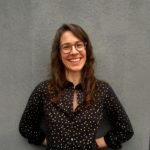 Jessie Kindig is an editor at Verso Books in New York City. She was trained as a historian of U.S. empire, and is currently faculty at the Brooklyn Institute for Social Research and a visiting scholar at Columbia University’s Center for the Study of Ethnicity and Race.
Jessie Kindig is an editor at Verso Books in New York City. She was trained as a historian of U.S. empire, and is currently faculty at the Brooklyn Institute for Social Research and a visiting scholar at Columbia University’s Center for the Study of Ethnicity and Race.
 Peter Kuznick is Professor of History and Director of the Nuclear Studies Institute at American University. He began his career writing about science and politics and U.S. cultural history, but in recent decades has focused more on nuclear history. He has been active in civil rights, anti-war, and anti-nuclear movements. His most recent project is the 12 part documentary film series (that originally aired on Showtime and is now on Netflix) and series of books both titled The Untold History of the United States, which he co-authored with filmmaker Oliver Stone. His current project is a feature film screenplay tentatively titled “Lost Cause” about Henry Wallace, Harry Truman, and the Origins of the Cold War.
Peter Kuznick is Professor of History and Director of the Nuclear Studies Institute at American University. He began his career writing about science and politics and U.S. cultural history, but in recent decades has focused more on nuclear history. He has been active in civil rights, anti-war, and anti-nuclear movements. His most recent project is the 12 part documentary film series (that originally aired on Showtime and is now on Netflix) and series of books both titled The Untold History of the United States, which he co-authored with filmmaker Oliver Stone. His current project is a feature film screenplay tentatively titled “Lost Cause” about Henry Wallace, Harry Truman, and the Origins of the Cold War.
 Patrick Manning is Andrew W. Mellon Professor of World History, Emeritus, at the University of Pittsburgh. Trained as a historian of Africa, he became a specialist in world history, emphasizing migration. He was AHA president in 2016. His next book is A History of Humanity: Evolution of the Human System.
Patrick Manning is Andrew W. Mellon Professor of World History, Emeritus, at the University of Pittsburgh. Trained as a historian of Africa, he became a specialist in world history, emphasizing migration. He was AHA president in 2016. His next book is A History of Humanity: Evolution of the Human System.
Deborah Menkart
 Donna Murch is associate professor of history at Rutgers University. She is currently completing a new trade press book entitled Crack in Los Angeles: Policing the Crisis and the War on Drugs. She also has a forthcoming books of essays that will be published later this year entitled, Assata Taught Me: State Violence, Mass Incarceration and the Movement for Black Lives.
Donna Murch is associate professor of history at Rutgers University. She is currently completing a new trade press book entitled Crack in Los Angeles: Policing the Crisis and the War on Drugs. She also has a forthcoming books of essays that will be published later this year entitled, Assata Taught Me: State Violence, Mass Incarceration and the Movement for Black Lives.
 Sharon Musher is Associate Professor of History at Stockton University. She writes and teaches about the New Deal, social and cultural history, gender, motherhood, and slave narratives. She is author of Democratic Art: The New Deal’s Influence on American Culture.
Sharon Musher is Associate Professor of History at Stockton University. She writes and teaches about the New Deal, social and cultural history, gender, motherhood, and slave narratives. She is author of Democratic Art: The New Deal’s Influence on American Culture.
Tej Nagaraja
 Molly Nolan is professor emerita of History at NYU. She works on transatlantic relations and the history of social and economic human rights and women’s human rights. She is an officer of the NYU AAUP chapter and a long time activist with Brooklyn For Peace.
Molly Nolan is professor emerita of History at NYU. She works on transatlantic relations and the history of social and economic human rights and women’s human rights. She is an officer of the NYU AAUP chapter and a long time activist with Brooklyn For Peace.
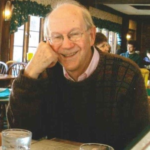 Jim O’Brien has been involved with left and antiwar history projects since graduate school at the University of Wisconsin in the 1960s. He was co-chair of Historians Against the War from 2007 to 2017. He is a part-time editor and indexer and formerly taught part-time at the University of Massachusetts Boston.
Jim O’Brien has been involved with left and antiwar history projects since graduate school at the University of Wisconsin in the 1960s. He was co-chair of Historians Against the War from 2007 to 2017. He is a part-time editor and indexer and formerly taught part-time at the University of Massachusetts Boston.
 Tanalís Padilla is Associate Professor of Latin American History at MIT and a scholar of twentieth-century Mexico interested in questions of political consciousness and popular struggle. She has participated in cross-border activism, solidarity movements with Chiapas’s indigenous Zapatistas, and labor and immigrants’ rights struggles. She is interested in continuing to build ties with justice movements in Latin America.
Tanalís Padilla is Associate Professor of Latin American History at MIT and a scholar of twentieth-century Mexico interested in questions of political consciousness and popular struggle. She has participated in cross-border activism, solidarity movements with Chiapas’s indigenous Zapatistas, and labor and immigrants’ rights struggles. She is interested in continuing to build ties with justice movements in Latin America.
 Prasannan Parthasarathi is Professor of Modern South Asian History at Boston College. His research interests are in eighteenth and nineteenth century South India and global history. He has been active in the peace movement for a number of years and was a founder of the 25% Solution: Fund Our Communities, Not War and was a member of the Sustainable Defense Task Force. He is on the board of Massachusetts Peace Action where he co-chairs the Middle East Working Group.
Prasannan Parthasarathi is Professor of Modern South Asian History at Boston College. His research interests are in eighteenth and nineteenth century South India and global history. He has been active in the peace movement for a number of years and was a founder of the 25% Solution: Fund Our Communities, Not War and was a member of the Sustainable Defense Task Force. He is on the board of Massachusetts Peace Action where he co-chairs the Middle East Working Group.
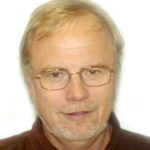 Jeffrey B. Perry is an independent, anti-white supremacist, working-class historian, activist, archivist, and former postal worker (33 years). He has written on Hubert Harrison, Theodore W. Allen, and postal struggles and has placed the Harrison Papers at Columbia and the Allen Papers at UMass-Amherst. Currently volume two of his Harrison biography is with the publisher and he is preparing additional Papers for placement. www.jeffreybperry.net
Jeffrey B. Perry is an independent, anti-white supremacist, working-class historian, activist, archivist, and former postal worker (33 years). He has written on Hubert Harrison, Theodore W. Allen, and postal struggles and has placed the Harrison Papers at Columbia and the Allen Papers at UMass-Amherst. Currently volume two of his Harrison biography is with the publisher and he is preparing additional Papers for placement. www.jeffreybperry.net
 Natalia Mehlman Petrzela is Associate Professor of History at The New School. Her current book, FIT NATION: How America Embraced Exercise as the Government Abandoned It, is under contract with University of Chicago Press. She also authored CLASSROOM WARS: Language, Sex, and the Making of Modern Political Culture (Oxford 2015). She cohosts history podcast Past Present and co-founded wellness education program Healthclass2.0.
Natalia Mehlman Petrzela is Associate Professor of History at The New School. Her current book, FIT NATION: How America Embraced Exercise as the Government Abandoned It, is under contract with University of Chicago Press. She also authored CLASSROOM WARS: Language, Sex, and the Making of Modern Political Culture (Oxford 2015). She cohosts history podcast Past Present and co-founded wellness education program Healthclass2.0.
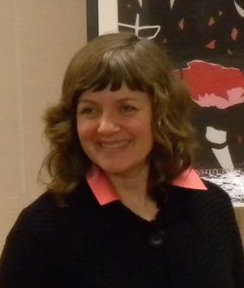 Margaret Power is a professor at the Illinois Institute of Technology who focuses on Latin America. She has written on the Right and women in Chile and Latin America and the Nationalist Party in Puerto Rico. In terms of her activism, she has opposed U.S. intervention and torture in Latin America and globally. She has prioritized women’s liberation. She is president of the Board of Directors of the Puerto Rican Cultural Center in Chicago.
Margaret Power is a professor at the Illinois Institute of Technology who focuses on Latin America. She has written on the Right and women in Chile and Latin America and the Nationalist Party in Puerto Rico. In terms of her activism, she has opposed U.S. intervention and torture in Latin America and globally. She has prioritized women’s liberation. She is president of the Board of Directors of the Puerto Rican Cultural Center in Chicago.
 Ellen Schrecker retired from Yeshiva University several years ago and has been working on a political history of the American academic community in the long 1960s ever since. She has written extensively on McCarthyism and higher education. Among her publications, No Ivory Tower: McCarthyism and the University; Many Are the Crimes: McCarthyism in America; The Lost Soul of Higher Education.
Ellen Schrecker retired from Yeshiva University several years ago and has been working on a political history of the American academic community in the long 1960s ever since. She has written extensively on McCarthyism and higher education. Among her publications, No Ivory Tower: McCarthyism and the University; Many Are the Crimes: McCarthyism in America; The Lost Soul of Higher Education.
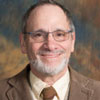 Alan Singer is a professor of Teaching, Learning and Technology and the director of social studies education programs at Hofstra University and a former New York City high school teacher. His most recent book is New York’s Grand Emancipation Jubilee (SUNY Press, 2018). His current political activity is support for student political activism.
Alan Singer is a professor of Teaching, Learning and Technology and the director of social studies education programs at Hofstra University and a former New York City high school teacher. His most recent book is New York’s Grand Emancipation Jubilee (SUNY Press, 2018). His current political activity is support for student political activism.
 Shanti Singham is a Professor of History and Africana Studies at Williams College. She grew up in Jamaica, teaches Marxism, and Caribbean and European History, and has been a lifelong activist. She was an active member of HAW during the Iraq War, helping lead a petition campaign for the NYRB.
Shanti Singham is a Professor of History and Africana Studies at Williams College. She grew up in Jamaica, teaches Marxism, and Caribbean and European History, and has been a lifelong activist. She was an active member of HAW during the Iraq War, helping lead a petition campaign for the NYRB.
 Andor Skotnes is professor of history and sociology at the Sage Colleges in Albany and Troy, New York. His research focuses on recent social movements, mainly in the U.S, and mainly concerning the Black freedom and working class struggles. He is currently a community activist in the Albany New York region.
Andor Skotnes is professor of history and sociology at the Sage Colleges in Albany and Troy, New York. His research focuses on recent social movements, mainly in the U.S, and mainly concerning the Black freedom and working class struggles. He is currently a community activist in the Albany New York region.
Robyn C. Spencer is a historian of Black social protest after World War II, urban and working-class radicalism, and gender. Her book The Revolution Has Come: Black Power, Gender, and the Black Panther Party in Oakland was published in 2016. She is involved in the political prisoner liberation movement and Black-Palestinian solidarity work.
 James L. Swarts has served as an adjunct lecturer specializing in United States and presidential history, and U.S. religious history at SUNY Geneseo since 2001, following careers in government and ministry. A Vietnam-era U.S. Navy veteran, he has been an active organizer and speaker in local antiwar activities over past eighteen years, and is President of the Rochester, NY chapter of Veterans For Peace. James has been on the H-PAD Steering Committee since 2011.
James L. Swarts has served as an adjunct lecturer specializing in United States and presidential history, and U.S. religious history at SUNY Geneseo since 2001, following careers in government and ministry. A Vietnam-era U.S. Navy veteran, he has been an active organizer and speaker in local antiwar activities over past eighteen years, and is President of the Rochester, NY chapter of Veterans For Peace. James has been on the H-PAD Steering Committee since 2011.
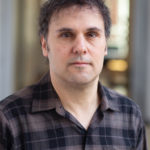 Jeremy Varon is a Professor of History at The New School. He writes and teaches about the 1960s, social movements, political violence, and the history of protest music and poetry. He is a longtime peace activist and a lead organizer with Witness Against Torture.
Jeremy Varon is a Professor of History at The New School. He writes and teaches about the 1960s, social movements, political violence, and the history of protest music and poetry. He is a longtime peace activist and a lead organizer with Witness Against Torture.
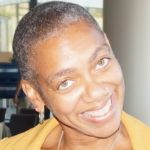 Rhonda Y. Williams is a historian of urban, African American, black women, political/social welfare, and social justice struggles. She is currently at Vanderbilt University, and previously at Case Western Reserve University, where she founded the Postdoc in AfAm Studies, and Social Justice Institute. She also participated in community-based work regarding policing in Cleveland.
Rhonda Y. Williams is a historian of urban, African American, black women, political/social welfare, and social justice struggles. She is currently at Vanderbilt University, and previously at Case Western Reserve University, where she founded the Postdoc in AfAm Studies, and Social Justice Institute. She also participated in community-based work regarding policing in Cleveland.
 Barbara Winslow, Professor Emerita, Brooklyn College; founder and director emerita of the Shirley Chisholm Project of Brooklyn Women’s Activism. Author, Sylvia Pankhurst:Sexual Politics and Political Activism ; Clio in the Classroom: A Guide to Teaching US Women’s History; Shirley Chisholm: Catalyst for Change, Eds with Julie Gallagher, Reshaping Women’s History: Voices of Non-Traditional Women’s History. Active in left feminism, teacher (union, schools and community) activism.
Barbara Winslow, Professor Emerita, Brooklyn College; founder and director emerita of the Shirley Chisholm Project of Brooklyn Women’s Activism. Author, Sylvia Pankhurst:Sexual Politics and Political Activism ; Clio in the Classroom: A Guide to Teaching US Women’s History; Shirley Chisholm: Catalyst for Change, Eds with Julie Gallagher, Reshaping Women’s History: Voices of Non-Traditional Women’s History. Active in left feminism, teacher (union, schools and community) activism.
 Kevin Young teaches history at the University of Massachusetts Amherst, where he specializes in political economy, social movements, and U.S. empire in modern Latin America. Outside the university, he is involved with the climate movement and with efforts to strengthen ties between climate groups and other struggles.
Kevin Young teaches history at the University of Massachusetts Amherst, where he specializes in political economy, social movements, and U.S. empire in modern Latin America. Outside the university, he is involved with the climate movement and with efforts to strengthen ties between climate groups and other struggles.
